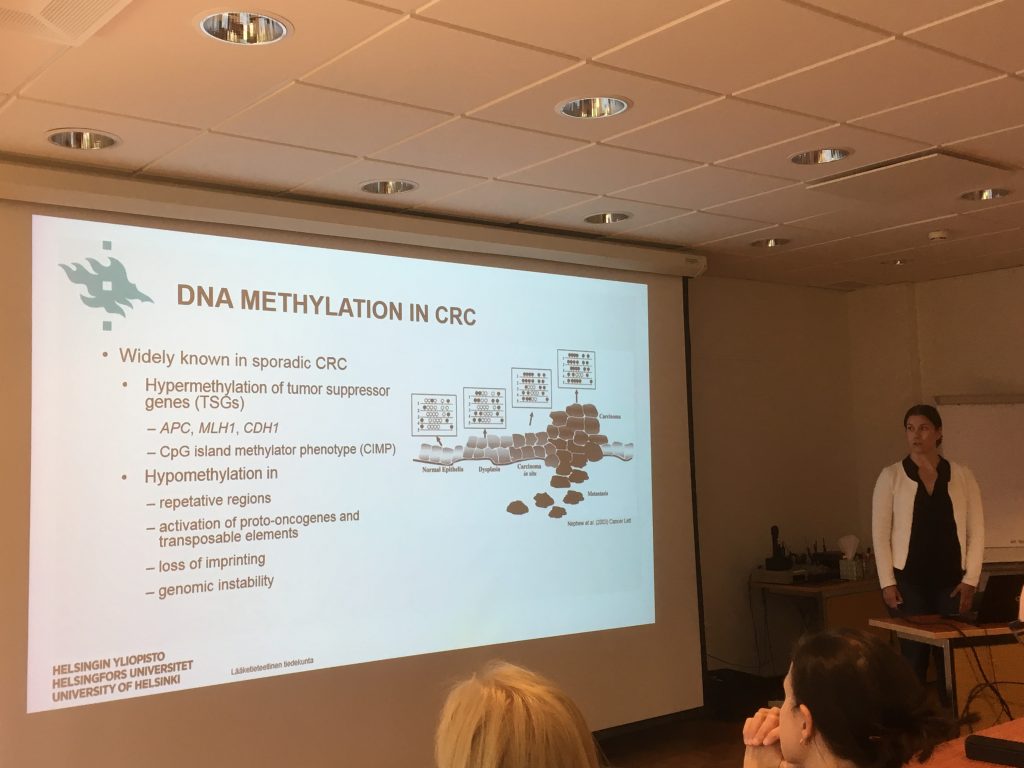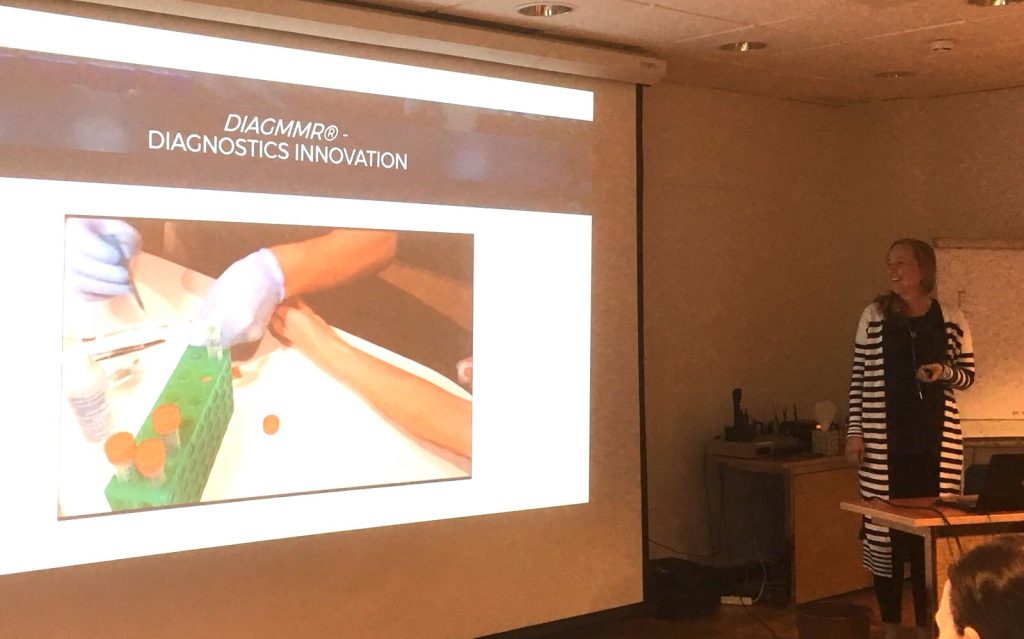The Annual Meeting of the Finnish collaborative HNPCC reseach groups was organized in Haikko, Porvoo on 9th of June 2018.
Prof. Päivi Pelomäki gave an overview of the on-going research projects including an overview of the current status of the collaborative project initiated together with Prof. Jukka-Pekka Mecklin and Prof. Minna Nyström funded by Jane and Aatos Erkko Foundation in aim to recognize molecular mechanisms of colon cancer susceptibility. Noora Porkka, M.Sc and Satu Mäki-Nevala, PhD, presented projects related to epigenetic and genetic characterization of Lynch and Lynch-like syndrome cancer. Minttu Kansikas, PhD, and Marjaana Pussila, PhD, from Prof. Minna Nyströms lab presented on-going projects related to the development and validation of a non-invasive test to detect Lynch syndrome (http://www.lscancerdiag.com/) and assessment of the effects of MLH1 gene deficiency in normal colon mucosa on colon cancer chromosome stability.


